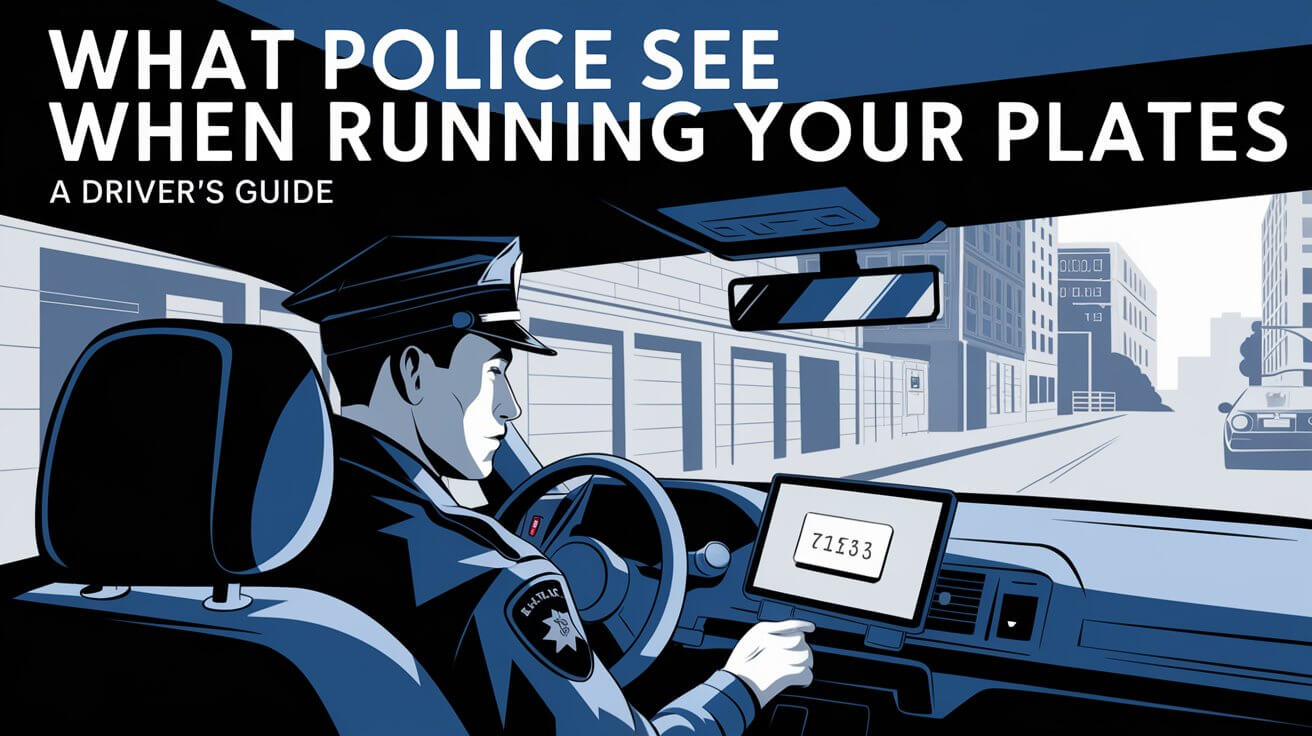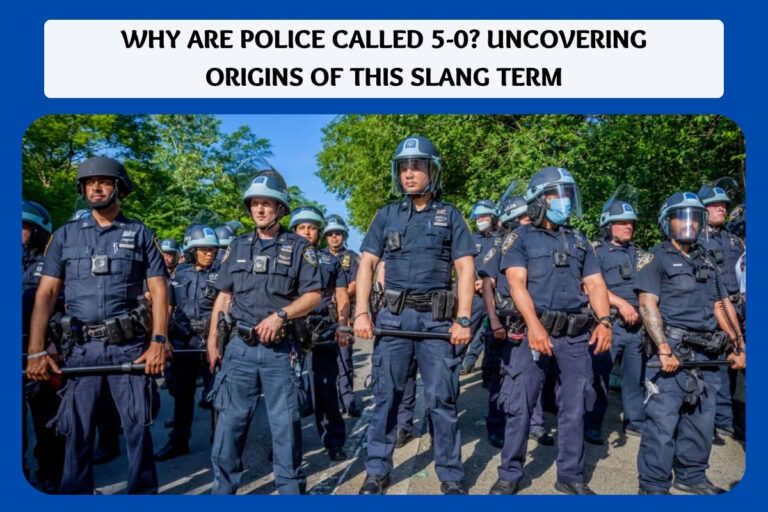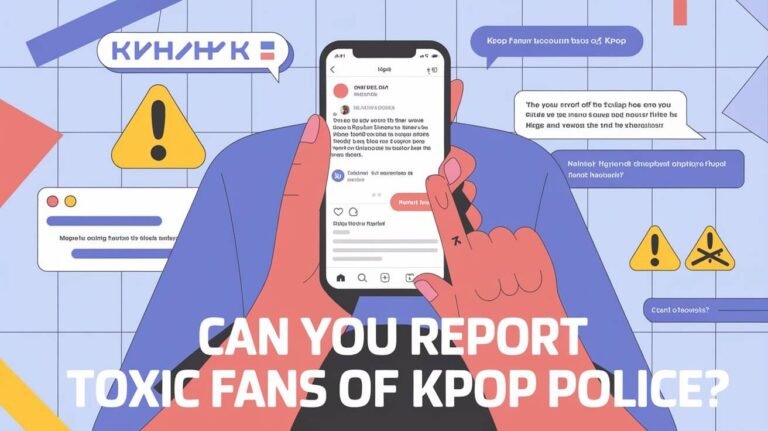What Police See When Running Your Plates: A Driver’s Guide

Police plate checks reveal key vehicle and owner details. This includes registration info, owner data, insurance status, and sometimes driver’s license and criminal records. It’s a routine practice that helps cops spot stolen cars, find suspects, and enforce traffic laws. Many drivers are curious about what exactly shows up when their plates get run.
We’ll break down the tech, data, and what it means for people behind the wheel.
How Police Run License Plates
Police use two main methods to check license plates:
Automated License Plate Readers (ALPRs)
ALPRs are high-speed camera systems mounted on police cars or fixed locations. They capture images of license plates and instantly check them against various databases.
These systems can scan hundreds of plates per minute, making them highly efficient for large-scale surveillance and quick checks during patrols.
Manual Plate Checks
Officers can also manually enter plate numbers into their in-car computers or radio them to dispatch. This method is typically used during traffic stops or when investigating specific vehicles.
When Can Police Run Your Plates?
In most states, police can run license plates at any time without needing probable cause. It’s considered a “plain view” observation, as license plates are displayed publicly.
However, some states have laws limiting when and how police can use ALPRs. Always check your local laws to understand your rights.
Basic Information Revealed by License Plate Checks
When police run your plates, they immediately access several key pieces of information:
Vehicle Registration Details
- Make and model of the vehicle
- Year of manufacture
- Vehicle Identification Number (VIN)
- License plate expiration date
Registered Owner Information
- Name of the vehicle’s registered owner
- Address associated with the registration
Insurance Status
In some states, police can see if the vehicle has current insurance coverage. This helps enforce mandatory insurance laws.
Additional Data Available to Law Enforcement
Beyond basic vehicle information, police may be able to access:
Driver’s License Status
If the system links vehicle registration to driver’s license records, police might see:
- Whether the registered owner’s license is valid, suspended, or revoked
- Any restrictions on the license (e.g., corrective lenses required)
Outstanding Warrants
The system checks if the registered owner has any active warrants for their arrest.
Criminal History
Some systems provide a brief criminal history of the registered owner. This might include:
- Past arrests or convictions
- Parole or probation status
Traffic Violations and Tickets
Officers may see a history of traffic violations or unpaid tickets associated with the vehicle or its owner.
Differences in Information Access Across States
The exact information available to police varies by state. Some key differences include:
Variations in State Laws and Regulations
States have different laws governing:
- What information can be linked to license plate records
- How long data from license plate readers can be stored
- Who can access the information
Interstate Information Sharing
Many states participate in information-sharing agreements, allowing police to access data from other states. This helps track vehicles across state lines and catch fugitives.
Technology Behind License Plate Checks
Several interconnected systems make rapid license plate checks possible:
NCIC Database
The National Crime Information Center (NCIC) database is a nationwide system that includes:
- Records of stolen vehicles
- Wanted persons
- Missing persons
When police run a plate, it’s automatically checked against the NCIC database.
State-Specific Databases
Each state maintains its own database of vehicle registrations, driver’s licenses, and local warrants. These systems provide more detailed information for in-state plates.
Integration with Other Law Enforcement Systems
Modern police systems often integrate license plate data with:
- Computer-aided dispatch systems
- Records management systems
- Body camera footage
This integration gives officers a more comprehensive view of potential risks or issues associated with a vehicle.
Privacy Concerns and Legal Implications
The widespread use of license plate readers and database checks raises several privacy concerns:
Fourth Amendment Considerations
Courts have generally held that running a license plate doesn’t constitute a search under the Fourth Amendment. However, using this information to conduct further investigations may require probable cause.
Data Retention Policies
How long should police keep data from license plate readers? This question is hotly debated. Some argue for long-term storage to help solve crimes, while privacy advocates push for rapid deletion of data.
Potential for Misuse
There’s always a risk that officers could misuse their access to this information. Strict policies and oversight are necessary to prevent abuse.
Common Reasons Police Run License Plates
Understanding why police run plates can help contextualize this practice:
Routine Traffic Stops
Officers often run plates before pulling a vehicle over. This helps them prepare for potential risks and verify the vehicle’s status.
Investigating Crimes
If a vehicle is suspected in a crime, police will run its plates to gather more information and potentially locate the vehicle.
Locating Stolen Vehicles
Regular plate checks help police identify and recover stolen vehicles more quickly.
What Police Can’t See When Running Plates
It’s also important to understand the limitations of license plate checks:
Real-Time Driver Information
A plate check doesn’t tell police who’s currently driving the car. It only provides information about the registered owner.
Passenger Details
Police can’t see information about passengers in the vehicle from a license plate check.
Vehicle Contents
License plate checks don’t reveal what’s inside a vehicle. Police need probable cause to search a vehicle’s interior.
How License Plate Checks Affect Traffic Stops
The information from a plate check can significantly impact how a traffic stop unfolds:
Influencing Officer Behavior
If a plate check reveals potential risks (like outstanding warrants), officers may approach the vehicle more cautiously.
Impact on Driver Interactions
Knowing a driver’s history can affect how an officer interacts with them. For example, they might be more lenient with a driver who has a clean record.
Tips for Drivers
Understanding what police see when they run your plates can help you stay prepared:
Keeping Registration and Insurance Current
Always keep your vehicle registration and insurance up to date. This prevents unnecessary complications during traffic stops.
Understanding Your Rights During Traffic Stops
Know your rights, but also understand that police have broad authority to run license plates and investigate potential issues.
What to Do If Pulled Over
- Stay calm and be respectful
- Keep your hands visible
- Provide your license, registration, and insurance when asked
- Don’t argue about the reason for the stop; you can contest it later if necessary
Future of License Plate Checks
As technology evolves, so too will the practice of running license plates:
Advancements in Technology
We can expect to see:
- More widespread use of ALPRs
- Integration with artificial intelligence for predictive policing
- Improved data sharing between agencies
Potential Changes in Legislation
As privacy concerns grow, we may see new laws governing:
- How long data can be stored
- What information can be linked to license plates
- Who can access this data and under what circumstances
Conclusion
When police run your plates, they gain access to a wealth of information about your vehicle and potentially about you as the registered owner. This practice helps law enforcement maintain road safety and solve crimes, but it also raises important privacy considerations.
By understanding what police can see when they run your plates, you can better navigate traffic stops and ensure you’re complying with all relevant laws. Remember to keep your registration and insurance current, know your rights, and always prioritize safety during any interactions with law enforcement.
FAQs About What Police See When Running Plates
Can police run my plates for no reason?
In most states, yes. Running plates is considered a “plain view” observation.
Do I have to tell police who was driving my car if they run the plates?
Generally, no. You’re not required to provide information about who was driving your car at a specific time.
Can police see my driving record when they run my plates?
It depends on the state and the systems in use. In many cases, they can see basic information about the registered owner’s license status.
How long do police keep data from license plate readers?
Data retention policies vary by jurisdiction. Some agencies delete data within days, while others may keep it for years.
Can I find out if police have run my plates?
In most cases, no. License plate checks are not typically logged in a way that’s accessible to the public.
Do police automatically run the plates of every car they see?
Not usually. While ALPRs can scan many plates, most departments don’t have the resources to check every single plate they encounter.
Can police run plates from other states?
Yes, police can run out-of-state plates. However, they may have access to less detailed information than they would for in-state vehicles.






